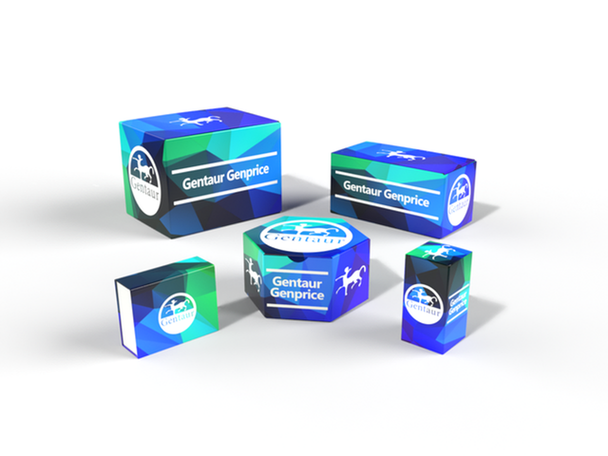Description
CDH20 Antibody | 64-158 | Gentaur UK, US & Europe Distribution
Host: Rabbit
Reactivity: Human
Homology: Predicted species reactivity based on immunogen sequence: Mouse, Rat
Immunogen: This CDH20 antibody is generated from rabbits immunized with a KLH conjugated synthetic peptide between 111-140 amino acids from the N-terminal region of human CDH20.
Research Area: Signal Transduction
Tested Application: WB, IHC-P, Flow
Application: For WB starting dilution is: 1:1000
For IHC-P starting dilution is: 1:50~100
For FACS starting dilution is: 1:10~50
Specificiy: N/A
Positive Control 1: N/A
Positive Control 2: N/A
Positive Control 3: N/A
Positive Control 4: N/A
Positive Control 5: N/A
Positive Control 6: N/A
Molecular Weight: 89 kDa
Validation: N/A
Isoform: N/A
Purification: This antibody is purified through a protein A column, followed by peptide affinity purification.
Clonality: Polyclonal
Clone: N/A
Isotype: Rabbit Ig
Conjugate: Unconjugated
Physical State: Liquid
Buffer: Supplied in PBS with 0.09% (W/V) sodium azide.
Concentration: batch dependent
Storage Condition: Store at 4˚C for three months and -20˚C, stable for up to one year. As with all antibodies care should be taken to avoid repeated freeze thaw cycles. Antibodies should not be exposed to prolonged high temperatures.
Alternate Name: Cadherin-20, CDH20, CDH7L3
User Note: Optimal dilutions for each application to be determined by the researcher.
BACKGROUND: This gene is a type II classical cadherin from the cadherin superfamily and one of three cadherin 7-like genes located in a cluster on chromosome 18. The encoded membrane protein is a calcium dependent cell-cell adhesion glycoprotein comprised of five extracellular cadherin repeats, a transmembrane region and a highly conserved cytoplasmic tail. Type II (atypical) cadherins are defined based on their lack of a HAV cell adhesion recognition sequence specific to type I cadherins. Since disturbance of intracellular adhesion is a prerequisite for invasion and metastasis of tumor cells, cadherins are considered prime candidates for tumor suppressor genes.





![CDH20 Antibody (N-term) [APR15398G] CDH20 Antibody (N-term) [APR15398G]](https://cdn11.bigcommerce.com/s-1rdwiq712m/images/stencil/590x590/products/59883/60187/gentaur-genprice__26005.1661610467__29809.1661628092__75433.1661676199__77988.1661684280__64362.1661692443__72190.1661862566.png?c=1)
